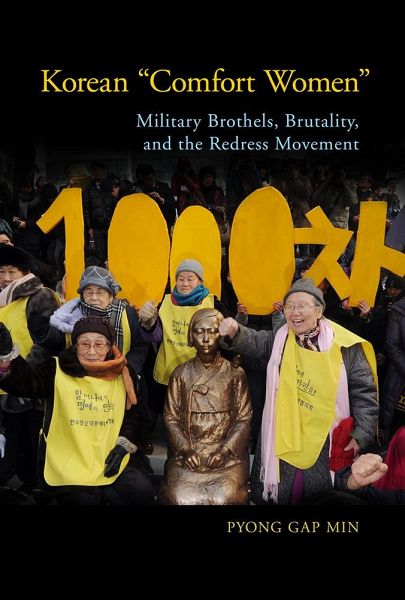
Korean Comfort Women
Military Brothels, Brutality, and the Redress Movement

PAYBACK Punkte
25 °P sammeln!
Arguably the most brutal crime committed by the Japanese military during the Asia-Pacific war was the forced mobilization of 50,000 to 200,000 Asian women to military brothels to sexually serve Japanese soldiers. Korean “Comfort Women” explores Korean comfort women’s brutal experiences and their residual marriage, family, economic, and healthcare problems. It also examines the transnational redress movement, demonstrating that the Japanese government has tried to conceal the crime of sexual slavery by resolving the issue with money alone.













